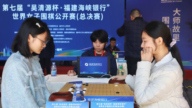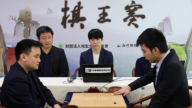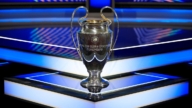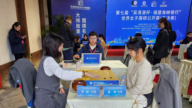【新唐人2012年8月1日訊】在倫敦奧運會舉重男子56公斤級角逐中,朝鮮選手嚴潤哲以293公斤的總成績奪冠,中國選手吳景彪以289公斤的總成績獲得銀牌。同樣都是來自於共產國家,他們的獲獎感言一個是感謝領導,另一就是愧對祖國。有分析認為,金牌、銀牌只是代表比賽的名次,但是在媒體長期的渲染下,金牌被貼上了所謂「愛國」的標籤。
倫敦奧運會男子舉重56公斤級比賽,原本被寄予厚望的中國力士吳景彪最終以289公斤的總成績名列第二。失去金牌的吳景彪被媒體形容為「痛苦坐地」、「泣不成聲」、「鞠躬道歉」。
中國自由撰稿人劉逸明:「中國的媒體是黨辦黨管,實際上就是說,中國的媒體算不上真正的新聞媒體,因為他不具備新聞媒體的一些基本職業道德,中國媒體最恰當的稱呼就是黨的喉舌,所以說呢,他們就會想方設法去迎合統治集團的口味,去報導一些官員喜歡看到的消息。」
同樣成為討論焦點的,還有女子53公斤級選手周俊,她因為三次試舉失敗而零分離場,創造了中國女舉的最差成績。被媒體稱為「恥辱」、「失利」的周俊,黯然落淚。
六四人士方政:「國內的很多媒體,他通過奧運會比賽,去弘揚所謂的愛國精神,去凸顯所謂的國家的力量,國家形象等等,反而去淡化了每個個人的自我的一種展現,個人價值這種事,中國現在這個問題也是很大,體制造成。」
畢業於北京體育學院的六四人士方政表示,這與國家政治制度有關,整個培養機制都對他們灌輸運動員是屬於國家的,換句話說,就是國家的面子工具。
六四人士方政:「從中國進入奧運會大門以後,強調的就是金牌掛帥,金牌第一,哪個運動員失誤沒有拿到應有的成績,就如喪考妣那樣覺得痛不欲生,好像天要塌下來了,這完全是一種扭曲的國家的一種狀況,是一種扭曲的制度,導致隊對奧林匹克運動的這種…,完全是一種褻瀆。」
據報導,周俊的一張「白卷」背後,還反映出中國舉重在選拔機制、省市平衡、補償照顧等多方面、深層次的問題。
而有關倫敦奧運金牌的得失,網友也在網上熱烈議論,有網友說,我明白供養龐大的官辦體育機構和那麼多職業運動員,是要花太多錢的,當一個國家還「老無所養、痛無所醫」時,再多的金牌也證明不了你不再是東亞病夫。
還有網民在微博發起「不拿金牌一樣是英雄」活動,呼籲各界對所有運動員一視同仁,不要逼他們奪金,並對中國為奪冠軍,不惜動用全國資源訓練運動員的體育體制大肆批評。
網友「蜜茶」說,咱們國家就是太「面子工程」了。而網友「阿班和小尼」則說,我己經對中國能得多少金牌,站在獎牌榜第幾位毫無興趣了,金牌的數量不能代表國民體育素質。
採訪/田淨 編輯/黃億美 後製/郭敬
Gold Medals Define Heroism for China’s Olympians
In the London Olympic Men’s Weightlifting 56kg competition,
the Korean Yan Runzhe won the gold medal
with a total score of 293 kilograms,
and the Chinese Wu Jingbiao took silver
with a total score of 289kg.
Both hail from communist countries, and both acceptance
speeches mentioned the leadership of their respective nations,
the former thanking his homeland and the latter expressing
shame for letting his motherland down.
Some analysts believe that gold medals and silver medals
are simply awards for placing in a competition.
However, under long-term media rendering,
a gold medal has turned into a symbol of patriotism.
At the London Olympic Games, there were high hopes for China’s
Wu Jingbiao to win the men’s weightlifting 56 kg competition.
However, he placed second with a total score of 289 kg.
The media described his inability to cope as “painfully sitting
on the ground," “weeping," and “bowing to apologize.”
Chinese freelance writer Liu Yiming: “Chinese media is state-run.
In practical terms, the Chinese media are not real news media,
as they lack some of the basic professional ethics of
the news media.
It is most appropriate to call them, 『the party’s mouthpiece.』
So, I say, they will find ways to cater to the ruling group
and to report something pleasing to the officials."
In the women’s 53 kg competition,
Zhou Jun has also become the focus of discussion.
She was disqualified after three failed attempts and ended with
a score of zero, which is the worst performance of the Chinese women weightlifting.
Media described her as a “disgrace.”
The defeated Zhou Jun shed many sad tears.
Fang Zheng of June 4 Massacre: “Many of the domestic media
spread patriotic spirit through the Olympic Games to highlight the so-called national strength and national image.
It waters down individual performance and personal value.
This is a serious problem in China, and it all stems from
the system.”
Fang Zheng, a graduate from the Beijing Institute of
Physical Education: “This has to do with the political system.
The training mechanism is to instill in athletes the belief
that they belong to the state, in other words, they are China’s face-saving tools.”
Fang Zheng: “Since China entered the Olympic Games,
the emphasis is gold medals, and gold medals come first.
Any athlete who fails to achieve a proper score is filled
with deep sorrow as if the sky had fallen down.
Such a distorted system is a sacrilege to the Olympic Games.”
According to reports, Zhou Jun’s score of zero also reflects
issues in the selection mechanism in China’s weightlifting,
balance between provinces and cities, compensation for
athletes’ care and many other deep-seeded problems.
The pros and cons about the Olympic gold medals in London
brought on heated discussions among Internet users.
One says that he understands the huge cost for the government
to support organizations and so many professional athletes,
but when a nation cannot “support its old or heal its sick people,”
no amount of gold medals can prove that it is not the weak, sick man from Asia.
On another microblog, one netizen initiated a “medal-less hero”
campaign calling on people to treat all athletes equally and not to force them to compete for gold medals.
The netizen also criticizes the system for utilizing national
resources to train athletes.
Netizen “honey tea" says, “Our country puts too much
emphasis on projects dedicated to saving face.
Another netizen says, “I have lost my interest in knowing
how many gold medals China can win.
The number of gold medals does not represent the quality
of our national sports.”




























